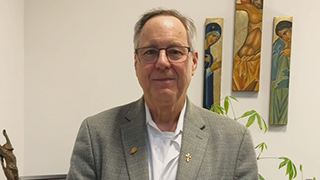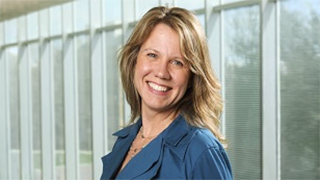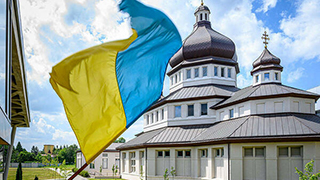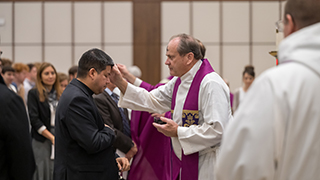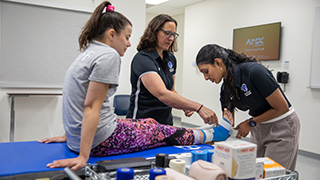Seton Hall’s Lilly Conference on Communication, Religion and the U.S. Presidential Election - Seton Hall University
Wednesday, October 7, 2020
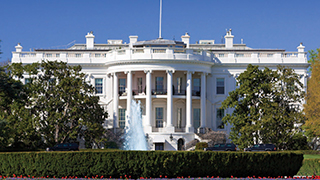
The event will be simulcast by Shemaroo, a leading media and content distribution company in India.
In addition to promoting dialogue on the role of religion in today's public sphere, these national experts will examine religion-based campaign messaging and associated media coverage and provide historical context that can help Americans interpret the intersection between politics and faith.
"It is impossible to understand American political rhetoric, widespread protesting, and the impending presidential election without also understanding our socio-religious history. Drawing, in part, from harsh lessons of religious division and persecution in Europe, our founders achieved a polity embodying both shining values of freedom and equality and tragic hypocrisies like slavery and genocide," said Institute Director and Associate Professor Jon Radwan, Ph.D. "Seton Hall's Institute for Communication and Religion is honored to host this conference and contribute to public dialogue on how America's faith/power dynamic is unfolding in the 2020 presidential campaign. We hope to infuse political communication scholarship and civic discourse with a spirit of prudence, charity, and social justice because statecraft and soul-craft are two sides of the same page."
The Institute for Communication and Religion (ICR) at Seton Hall was awarded a grant from the National Network Board of the Lilly Fellows Program in Humanities and the Arts in support of the programming, which will feature scholars from across the continental United States as well as Europe.
The conference, "Communication and Religion in the 2020 U.S. Presidential Election," will be broadcast live by Seton Hall and video of key portions of the event will later be made available for those who cannot attend virtually.
Featured speakers for the event will include:
• Peter Beinart, professor of journalism and political science at the City University of New York;
he is also a Contributing Opinion Writer at The New York Times, a CNN Political Commentator, Editor-at-Large of Jewish Currents and a Non-Resident Fellow at the Foundation for Middle East Peace. Beinart will present "Judaism and Christianity in the 2020 Election" with ICR Director
Jon Radwan on October 23, 12:30 – 1:45 p.m.
From Seton Hall's faculty, Professors of Political Science Jo-Renee Formicola, Ph.D., and Rob Pallitto, Ph.D., J.D., will also present. Formicola's "Catholics, the Media, and the 2020 Presidential Election" will examine how critical a factor is religion in U.S. elections, while Pallitto will explore ideological phenomena associated with the 2020 presidential race in "Trump, the 2020 Election and the Limits of Ideology Theory."
Click here to register for this LIVE Broadcast Event.
On the Topic
Regarding the confluence of religion and politics in this upcoming presidential election,
Professor Ronald C. Arnett of Duquesne said, "The upcoming election calls forth prayer,
reflections on peace, poverty, the environment, and acts of grace. I pray for the
likes of Dorothy Day once again." Regarding his presentation at the conference in
a recent interview Arnett noted "The primary thought that I will work from is the
issue that practices matter. In times of confusion, I think very few people are assisted
by stories; instead, they are assisted by practices. I look at what are the practices
that divide us and unite us and that provide a kind of dwelling for dialogue and conversation."
Professor Peter Beinart of CUNY noted, "2020 may prove one of the few presidential elections in recent memory in which the Democratic candidate speaks more comfortably about religion than the Republican." In a recent interview he noted, however, "In every election I can remember people have talked about the state of our country being at stake. I don’t think there has been an election like this one where people have talked about the future of America as a democracy being at stake."
Expressing a view of the subject as it relates to digital media, Professor Heidi Campbell of Texas A&M said:
"Religious rhetoric and symbolism have become very public and prominent in discussions about politics in the run up to the 2020 elections. Popular views and debates about these intersections between religion and politics are also increasingly played out online in spaces such as Twitter and Instagram through Internet memes. What we see in these image-based depictions is the rise in American Civil Religion that sits uncomfortably with the traditional understanding of religion within many faith-based communities. Internet memes present the religion of politics as a space where faith is skewed and contested."
Since its inception, the Institute has held numerous educational events, and has exciting future plans.
ICR Events
Its inaugural event, "Speaking Truth: Religion in the News Media," featured the Wall Street Journal Columnist
William McGurn, while award-winning religion journalist David Gibson hosted the Spring
2018 "Speaking Truth to Power: How Faith Can Get a Fair Hearing in Today's Media."
Along hosting with Ethically Speaking symposium in 2018.
In Spring 2018, ICR received positive media coverage for the event "The Absence of Healthy Confrontation: Reflections on Pope Francis' World Communications Day Message on Fake News," part of the "Critical Issues in Information and Education" Speakers Series by University Libraries.
Additionally, internationally renowned scholar Heidi Campbell, Ph.D., Swami Sarvapriyananda, spoke on fostering religious harmony.
In August , ICR co-hosted theInternational Gita Symposium 2020, "The Bhagavad Gita and Humanity Today." A partnership with the Gita Jayanti Committee of Singapore, this virtual forum brought international scholars and faith leaders together to explore practical wisdom shared in the Bhagavad Gita, an ancient Hindu spiritual masterpiece.
About ICR:
Launched in Fall 2017, the Institute for Communication and Religion within the College of Communication and the Arts provides a nexus for ongoing scholarly exploration of communication topics critically
important to religion and society. Guided by the spirit of ecumenical and interreligious
cooperation, the Institute seeks to engage in public dialogue and debate, promote
academic inquiry and support the religious dimension of creativity — all while upholding
the values of servant leadership, curricular innovation and intellectual excellence.
For more information about, visit the Institute for Communication and Religion's website
or email Jon Radwan, Ph.D., at [email protected].
Categories: Faith and Service, Nation and World


